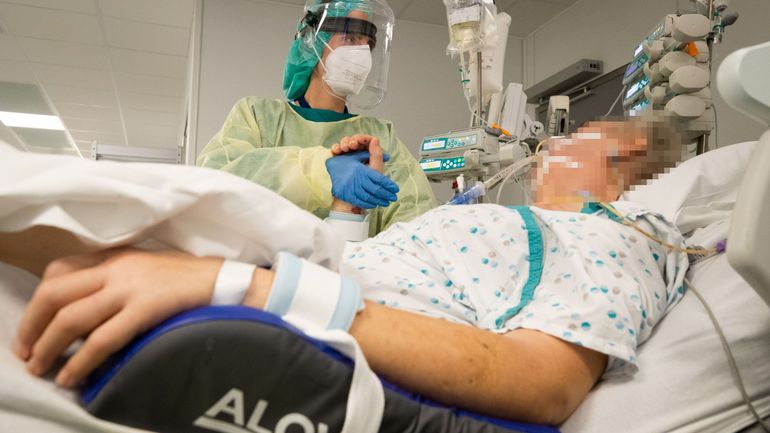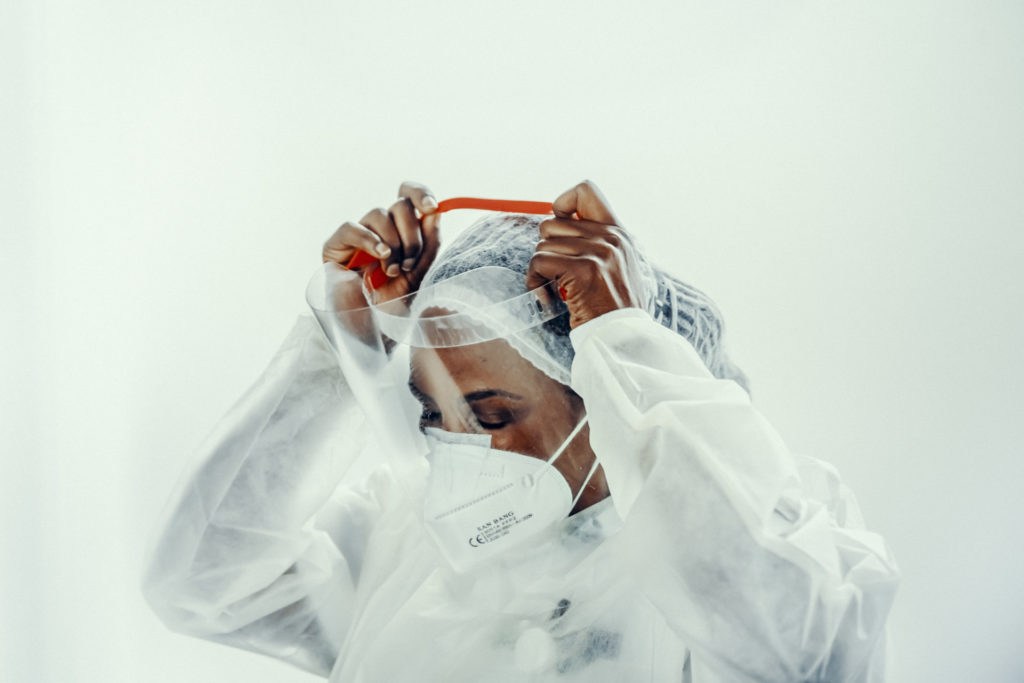Hospitals in Belgium are facing a more difficult battle during the fourth wave, as they have been asked to reserve intensive care beds for Covid-19 patients, but can't man them all due to staff shortages.
Belgium has 2,000 intensive care unit beds, of which 666 (25%) have to be reserved for coronavirus patients within two weeks as a result of the rising number of Covid-19 hospitalisations. However, 5% of these beds are "closed," meaning there is less place in the hospital to admit patients.
"Our margins are getting smaller. We do not have an overview of the staffing levels per hospital, nor of the absenteeism, but the closed beds that the hospitals report to us do give an indirect picture of their capacity," Marcel Van der Auwera of the Hospital & Transport Surge Capacity Committee told De Standaard.
Although beds can be closed for technical reasons, such as the rebuilding of wards, the situation in most hospitals, including in Leuven, Ghent, Brussels and Liège, are a result of staff shortages. Healthcare personnel are cancelling shifts either because they are ill themselves or because they have to go into quarantine following a close contact.
To avoid this situation, Belgium’s Risk Management Group (RMG) decided on Wednesday last week that vaccinated care personnel can continue to work after a high-risk Covid-19 contact pending a negative test result to avoid jeopardising the continuity of care.
Related News
- Visits to hospitals in Luxembourg province mostly banned from Monday
- 'Still too early' to take new federal measures, says Verlinden
The trend is reportedly also taking place in regular wards. Often, these are already freeing up beds for urgent care, but are now seeing their capacity reduced as staff are off sick or in quarantine.
Meanwhile, for every closing bed, non-urgent care is further postponed, while most hospitals were just starting to catch up with the care that was postponed as a result of the previous wave.
'Can't do it anymore'
The current situation is also further strengthening burnout and the sense of despair among staff, many of whom were already suffering from this condition after having to work on the "Covid-19" section last year.

Credit: Belga
"Hospitals report to me that when they ask care providers to help out in a COVID department, they sometimes call in sick. They can't do it any more. Others quit and look for another job," Van der Auwera, who monitors the situation on a daily basis, said.
"Understandable: the daily deaths have become almost a normality for the general population, but these people are confronted with an abnormally high number of deaths. We underestimate that."
Healthcare professionals are now being invited for a booster vaccine. However, for many hospitals this comes too late, as it would have helped them avoid an increase in staff shortages due to the virus during this wave.

